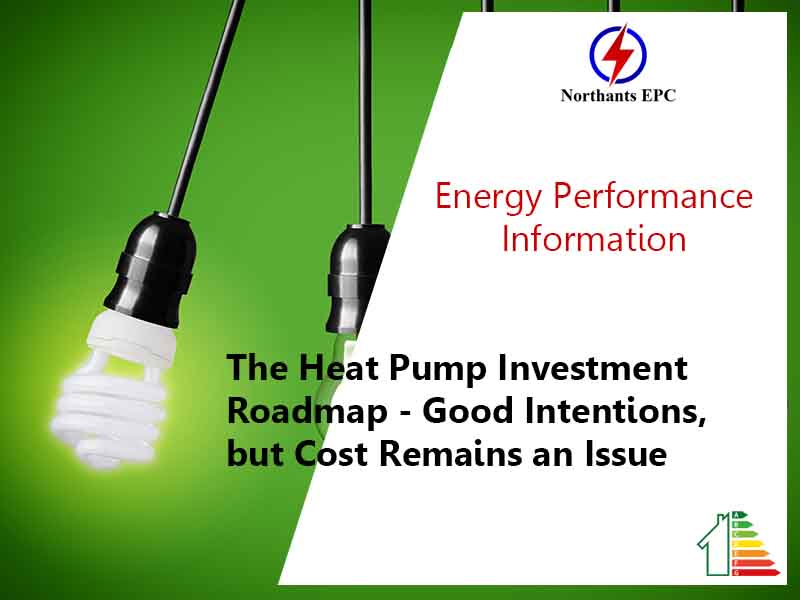The Heat Pump Investment Roadmap – Good Intentions, but Cost Remains an Issue
As the world grapples with the urgency of addressing climate change, the UK government has been taking significant steps to combat carbon emissions and move towards a net-zero future. One key area of focus is decarbonizing heating, which is responsible for over a third of the UK’s carbon emissions. To achieve this ambitious goal, the Department for Energy Security & Net Zero has unveiled the Heat Pump Net Zero Investment Roadmap, a comprehensive plan outlining the government’s policies and investment opportunities in heat pumps.
The Importance of Heat Pump Net Zero Investment Roadmap
The Heat Pump Net Zero Investment Roadmap emphasizes the pivotal role that heat pumps play in the journey towards decarbonizing homes and businesses across the UK. These devices have the potential to drastically reduce carbon emissions and align the nation’s policies and investments with climate and environmental targets. With the net zero target set for 2050, the government faces the enormous challenge of decarbonizing the heating of more than 30 million homes and businesses within a little over 25 years.
Ambitious Targets and Investment Opportunities
To meet this challenge, the government has set ambitious targets for the adoption of heat pumps. The plan outlines an increase in heat pump installations from 55,000 per year in 2021 to an astounding 600,000 per year by 2028. Achieving this growth will require a cumulative investment of up to £28 billion throughout the supply chain. Such an achievement would not only make the UK one of the largest markets for heat pumps in Europe but also significantly contribute to the reduction of carbon emissions.
Supportive Policy Measures
The Heat Pump Net Zero Investment Roadmap comes with a range of policy measures designed to foster the growth of the heat pump market. Among these measures are targeted regulations to phase out fossil fuel heating installations, the introduction of a market-based mechanism for clean heat, and the implementation of public funding and investment through schemes like the Boiler Upgrade Scheme.
The Boiler Upgrade Scheme, in particular, is a noteworthy initiative. It offers £5,000 of grant funding to households interested in installing heat pumps and has been extended until 2028 as part of the government’s Powering Up Britain policy paper. This scheme will play a crucial role in incentivizing homeowners to switch to greener heating options and contribute to the rapid expansion of heat pump installations.
Fostering Local Manufacturing and Job Creation
The roadmap also foresees significant growth in the manufacturing of heat pumps within the UK. The government expects that by 2028, at least 300,000 heat pumps will be manufactured domestically. To facilitate this growth, the government has planned investments worth up to £1 billion to support component manufacturing and other related industries. This presents a tremendous market opportunity for both established heat pump manufacturers and new entrants into the field, offering them the chance to capitalize on the growing demand for sustainable heating solutions.
Supporting Private Sector Investment
Recognizing the crucial role of the private sector in driving innovation and investment, the government is implementing various measures to support businesses in adopting heat pump technologies. These measures include tax relief and export incentives, aimed at encouraging private sector investment in sustainable heating solutions.
The Heat Pump Investment Accelerator Competition, a flagship initiative with a budget of up to £30 million, has also been launched to bolster local supply chains and create new low carbon jobs. This competition will not only drive technological advancements in heat pump manufacturing but also contribute to the creation of thousands of jobs in the green energy sector.
Cost Concerns and Criticism
Despite the well-intentioned efforts laid out in the roadmap, the government has faced criticism from some quarters, particularly regarding the affordability of heat pumps. Critics argue that the current cost of heat pumps, which hovers around £10,000 on average, remains a significant barrier to widespread adoption. To meet the target of 600,000 heat pump installations per year by 2028, prices would need to decrease by 25-50% within just two years. Additionally, there are concerns that heat pumps, on average, are more expensive to run than conventional gas boilers.
Furthermore, the Boiler Upgrade Scheme, though a positive step, is limited in its reach, covering only 30,000 installations per year across the UK. This limitation could impede the government’s ability to drive the necessary level of adoption to achieve its ambitious targets.
Conclusion
The Heat Pump Net Zero Investment Roadmap represents a bold and much-needed effort by the UK government to tackle the pressing challenge of decarbonizing heating and combatting climate change. By outlining ambitious targets, supporting private sector investment, and fostering domestic manufacturing, the roadmap lays the groundwork for significant progress in the adoption of heat pumps.
However, concerns about the cost of heat pumps and their long-term affordability raise valid points. The government must work collaboratively with industry stakeholders to address these challenges effectively. By doing so, the UK can pave the way for a cleaner, more sustainable future, contributing not only to its net zero ambitions but also to the global fight against climate change. With continued commitment and collaboration, the Heat Pump Investment Roadmap can be a transformative force in shaping the future of heating and energy consumption in the UK.
